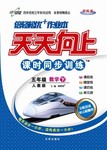题目内容
All their attempts to rescue the child from the burning building were ______.He dies soon afterwards.
A.in place B.in return C.in vain D, for
D
解析

 赢在课堂名师课时计划系列答案
赢在课堂名师课时计划系列答案 天天向上课时同步训练系列答案
天天向上课时同步训练系列答案As computers become more popular in China , Chinese people are increasingly relying on computer keyboards to input Chinese characters . But if they use the computer too much , they may end up forgetting the exact strokes(笔画)of each Chinese character when writing on paper . Experts suggest people , especially students , write by hand more .
Do you write by hand more or type more ? In Beijing , students start using a computer as early as primary school . And computer dependence is more widespread among university students . Almost all their assignments and essays are typed on a computer .
All the students interviewed say they usually use a computer .
It’s faster and easier to correct if using a computer . And that’s why computers are being applied more and more often to modern education . But when people are taking stock in computers increasingly , problems appear .
“ When I’m writing with a pen , I find I often can’t remember how to write a character , though I feel I’m familiar with it .”
“ I’m not in the mood to write when faced with a pen and paper .”
Many students don’t feel this is something to worry about . Now that it’s more convenient and efficient to write on a computer , why bother to handwrite ?
Many educators think differently . Shi Liwei , the headmaster of a famous primary school in the capital said “ Chinese characters enjoy both practical and aesthetic(审美的)value . But those characters typed with computer keyboards only maintain their practical value . All the artistic beauty of the characters is lost . And handwriting contains the writer’s emotion . Through one’s handwriting , people can get to know one’s thinking and personality . Beautiful writing will give people a better first impression of them .”
To encourage students to handwrite more , many primary schools in Beijing have made writing classes compulsory(必修的)and in universities , some professors are asking students to turn in their homework and essays written by hand .
1.Which of the following can best serve as the title of the passage ?
|
A.The Importance of Handwriting and Typing . |
|
B.To Type or to Handwrite . |
|
C.Writing by Computer Will Replace Writing by Hand |
|
D.Practical and Aesthetic Value of Chinese Characters |
2.The students interviewed prefer to write using a computer mainly because .
|
A.they are usually asked to email their homework and essays |
|
B.they can correct the mistakes they make quickly and conveniently |
|
C.they find it not easy to remember how to write a character |
|
D.computers have become a trend and fashion in China |
3. Which of the following statements is NOT true of the advantages of handwriting ?
|
A.Handwriting contains the writer’s emotion . |
|
B.The writer’s thinking and personality are shown in his or her handwriting . |
|
C.Handwriting can impress people well and build one’s self-confidence . |
|
D.Chinese characters enjoy both practical and aesthetic value . |
4. The underlined expression “ taking stock in ” ( Paragraph 4 ) probably means .
|
A.getting bored with |
B.getting dependent on |
|
C.becoming crazy about |
D.getting curious about |
5. We can draw the conclusion from the passage that .
|
A.more and more students will give up writing on a computer |
|
B.writing by hand will give way to typing by computer one day |
|
C.more and more students will pay attention to handwriting |
|
D.the typing article better expresses one’s emotion and quality |
The villagers, _________ had been damaged by the flood, were given help by the Red Cross.
|
A.all of their homes |
B.all their homes |
C.whose all homes |
D.all of whose homes |